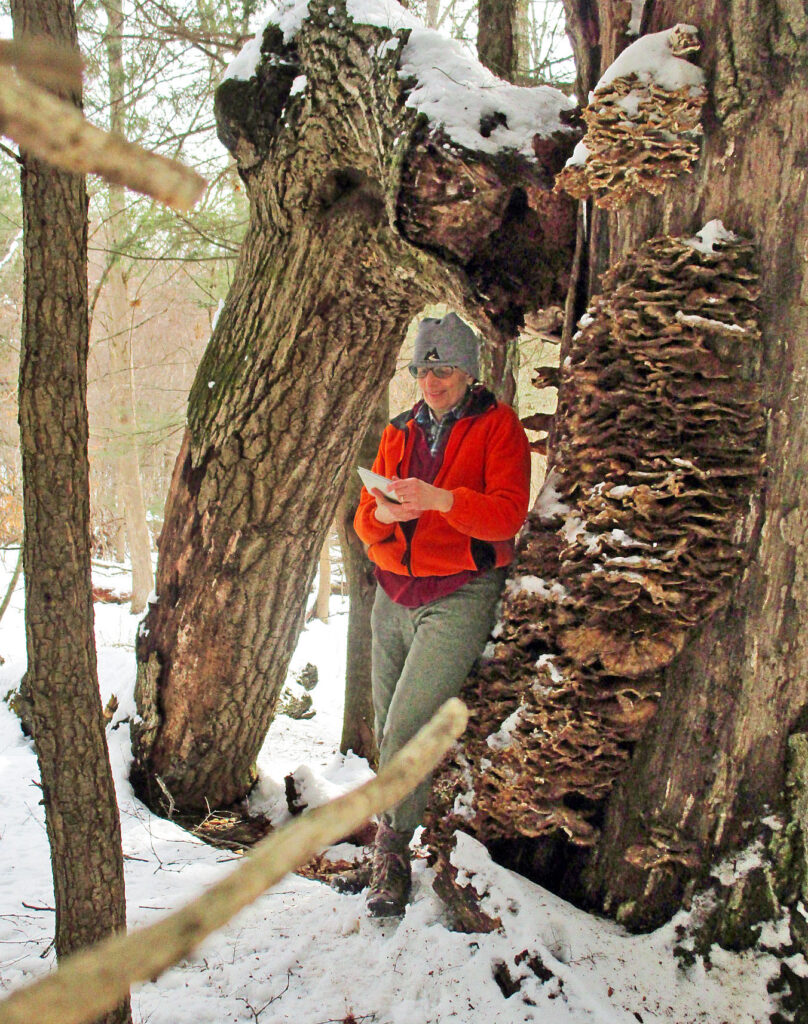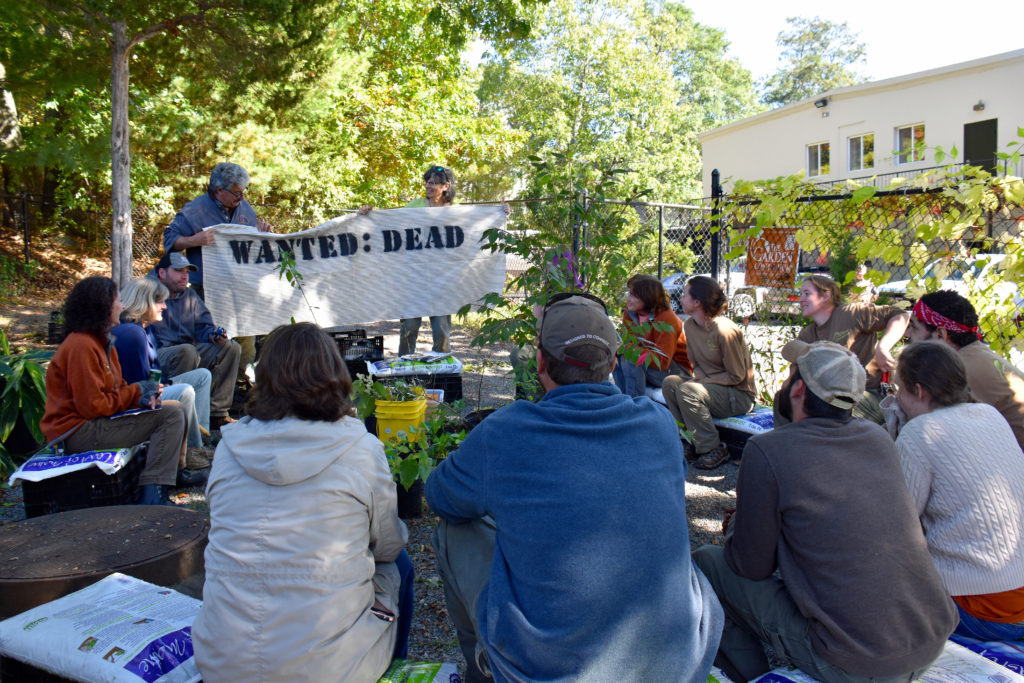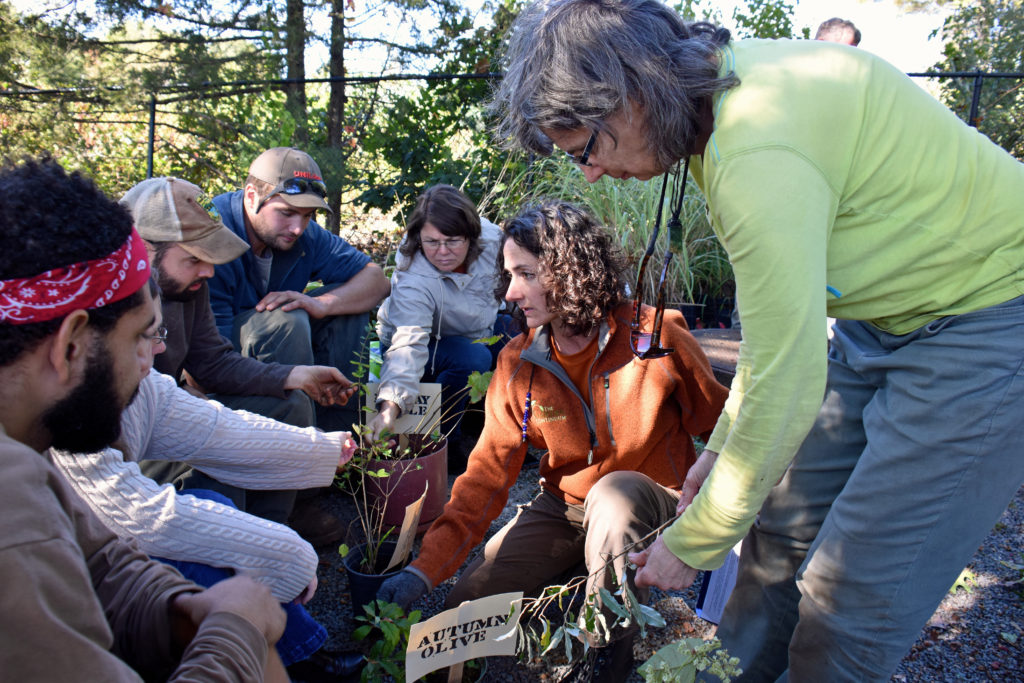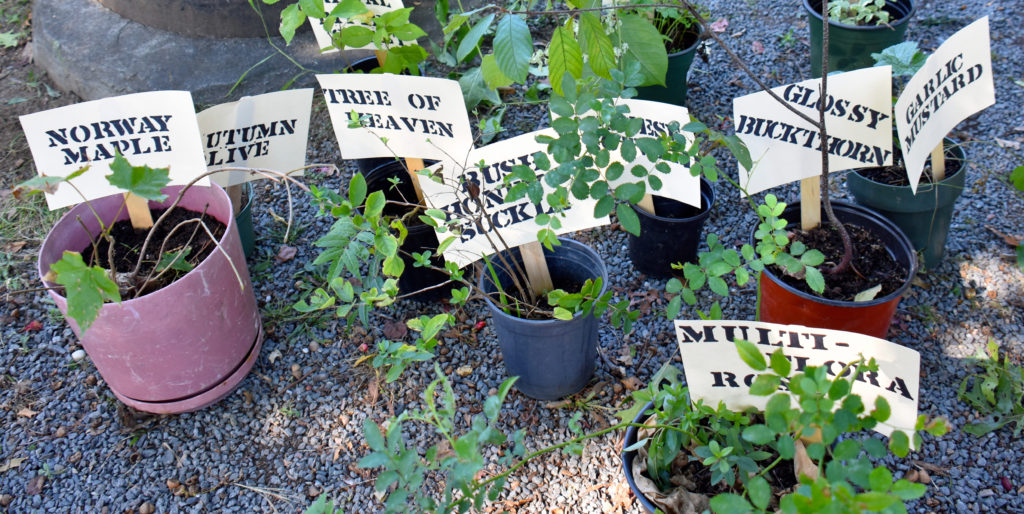What to do for your habitat and pollinator gardens this winter? It’s learning season!

Garden-911 Boston owner Carol Lundeen learns to estimate the age of an old growth northern red oak tree. Since the actual age of trees cannot be determined without cutting the trunk and counting its individual growth rings – or by using a core boring tool – she instead used her outstretched arms as a measuring tape to estimate its circumference, which was more than three times her reach. Dividing the circumference by pi (approx 3.14), she arrived at the DBH (diameter at breast height). Using an arborist multiplication factor specific to northern red oaks, she estimated that this Quercus rubra lived for about 265 years old before its growth potential, environmental and cultural factors brought on its demise – though it’s now continuing the cycle of life by being home to walls of fungi, birds, insects and other wildlife.
Nothing like having something inspiring to look forward to during a pandemic – like learning! The Ecological Landscape Alliance’s 27th Conference and Eco-Marketplace lights up my calendar on March 3-4 and I can’t wait to sample the design, climate change/resilience and inclusion tracks. Below are the top ten talks I’ve circled so far. For more info, visit https://www.ecolandscaping.org – I hope to see you there!
Learn about top new trends in native plant and pollinator gardens, design and consulting:
- Toby Wolf, Wolf Landscape Architecture: “Sharing the Adventure: Design Communications for Ecological Landscapes”
- Gerdo Aquino, SWA Group: “The Aesthetics of Ecology and Why Design Matters”
- Nadia Malarkey, Nadia Malarkey Design: “Regenerating Suburbia One Garden at a Time”
- Lisa Hayden, New England Forestry Foundation: “Engaging Landowners in Sustainable Stewardship”
- Leah Penniman, Soul Fire FarmFarming While Black: “African ” Wisdom for Farming and Food Justice”
- Ryan Serrano, Earth Steward Ecology Inc: “Regenerative Landscape Essentials: Tethering Function and Aesthetic
- Pamela Conrad, CMG Landscape ArchitectureClimate Positive Design – Going Beyond Neutral
- Dan Jaffe Wilder, Norcross Wildlife Sanctuary: “Taking on the Big Places: How to Build and Maintain Self-Sufficient Landscapes”
- Thursday’s Luncheon Discussion: “Diversity, Equity, and Inclusion in Horticulture”
- Anna Fialkoff, Wild Seed Project: “Rewild in 10 Action Steps
About the ELA (Ecological Landscape Alliance)
Here’s the scoop on the ELA, of which I’m a member, quoted from the ELA website:
“Since its founding in 1992, the Ecological Landscape Alliance has been a leader in promoting sustainable approaches to landscape design, construction, and management. ELA’s commitment to innovative ideas and evidence-based practices has made the organization both a trusted resource and a vibrant community of landscape professionals and devoted gardeners.
Our Mission
The Ecological Landscape Alliance advocates for ecological landscape practices through education, collaboration, and outreach.
Our Vision
Everyone who interacts with the land is a steward whose actions are informed by an understanding of and respect for natural systems.”
For more info visit https://www.ecolandscaping.org
Please follow and like us:




